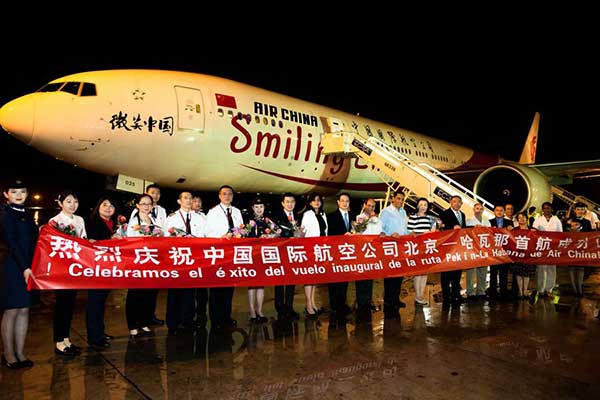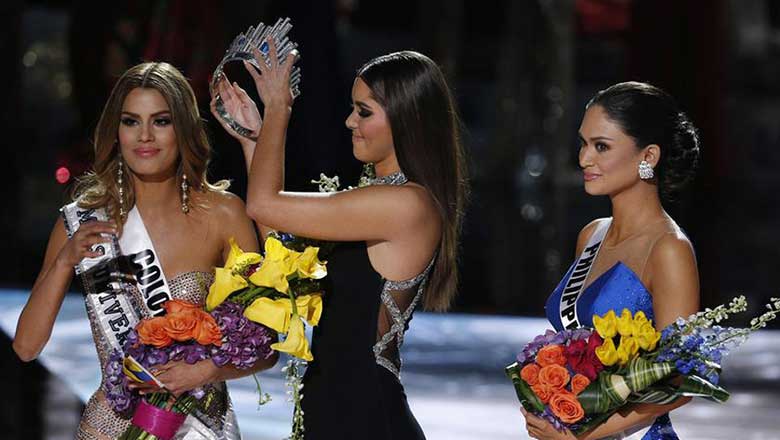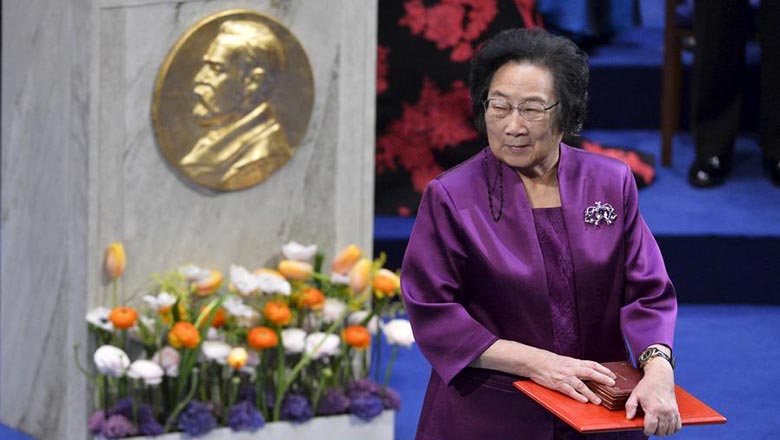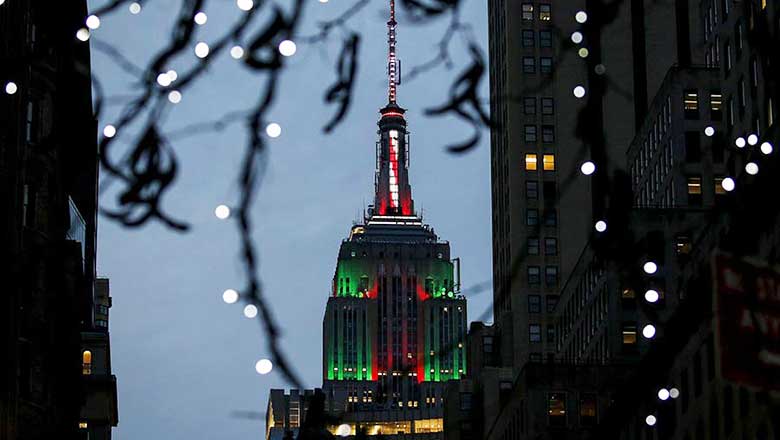Beijing-Havana direct flight helps boost tourism
Updated: 2015-12-29 10:53
(Xinhua)
|
||||||||
 |
|
Between January and November of this year, 25,777 Chinese travelers visited Cuba, a 16.5 percent increase over the same period the year before, according to figures from the Cuba's government statistics agency (ONEI).[Photo/Xinhua] |
Chinese Ambassador to Cuba Zhang Tuo on Monday said the launch of a direct Beijing-Havana flight is expected to boost China-Cuba ties in several areas, especially tourism.
The inaugural plane, operated by Air China, one of major Chinese airlines, landed at the Jose Marti International Airport in Havana, Cuba's capital, at 9:15 pm local time Sunday (0115 GMT Monday) after some 19 and a half hours of flight, with a technical stop in Montreal, Canada.
Previously, flights between the two countries would have to go via Spain, Germany, France or Mexico, making it a longer journey.
Among the 211 passengers who disembarked from the Boeing 777-300er Sunday night was the vice president of Air China, Wang Yinxiang, who was among guests to celebrate the opening of the new air route and 55 years of the establishment of diplomatic relations between the two countries.
Ambassador Zhang said that China is the world's leading provider of tourists, and the opening of the new air route caters to the many Chinese who want to visit the Caribbean island nation. Zhang said Cuba is now in a position to make the most of that market.
Between January and November of this year, 25,777 Chinese travelers visited Cuba, a 16.5 percent increase over the same period the year before, according to figures from the Cuba's government statistics agency (ONEI).
The president of Cuba's Civil Aviation Institute, Alfredo Cordero, said Sunday night that the new air connection will promote interchange between peoples of the two countries, as well as tourism.
The thrice-weekly flight (Tuesday, Friday, Sunday) has a capacity to seat at least 300 passengers a time, meaning some 3,500 Chinese citizens could potentially travel to Cuba each month, said Cordero.
Tourism is Cuba's second largest source of hard currency earnings, after medical exports, bringing in some $2 billion a year. The national tourism industry offers 61,000 hotel rooms distributed among 335 hotels, of which, 65 percent are four- and five-star ones.
Up to November, some 3.1 million international travelers visited Cuba, 17.6 percent more than the same period the year before, according to Cuba's Tourism Ministry.
- More aid from China set for Syria
- Japanese journalist reportedly being held in Syria
- New York City has warmest Christmas Eve on record
- One dead as fight leads to fatal shooting at North Carolina mall
- Trump's lead bodes well for Hillary Clinton's presidential bid
- Spanish Socialist leader insists no support for Rajoy

 Top 10 policy changes in China in 2015
Top 10 policy changes in China in 2015
 Yearender 2015: Natural disasters
Yearender 2015: Natural disasters
 The world in photos: Dec 21 - 27
The world in photos: Dec 21 - 27
 Yearender: Film critics' top 10 Chinese films of 2015
Yearender: Film critics' top 10 Chinese films of 2015
 Goldware inscribed with characters unearthed from ancient cemetery
Goldware inscribed with characters unearthed from ancient cemetery
 China's top scientific achievements in 2015
China's top scientific achievements in 2015
 Yearend 2015: A picture and its story
Yearend 2015: A picture and its story
 Christmas celebrated across the world
Christmas celebrated across the world
Most Viewed
Editor's Picks

|

|

|

|

|

|
Today's Top News
Shooting rampage at US social services agency leaves 14 dead
Chinese bargain hunters are changing the retail game
Chinese president arrives in Turkey for G20 summit
Islamic State claims responsibility for Paris attacks
Obama, Netanyahu at White House seek to mend US-Israel ties
China, not Canada, is top US trade partner
Tu first Chinese to win Nobel Prize in Medicine
Huntsman says Sino-US relationship needs common goals
US Weekly

|

|








